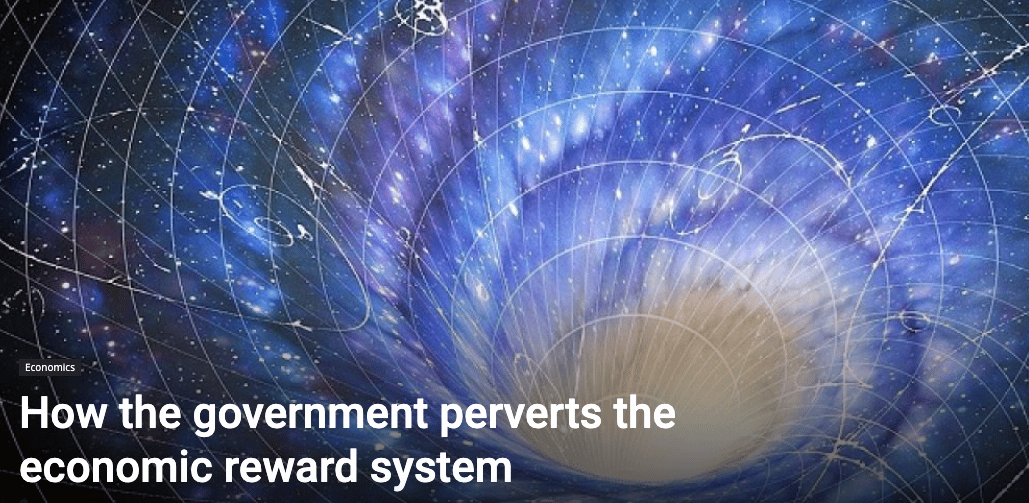How do some people figure out ways to make lots of money? And what is the reason that someone gets paid for his work? Earning money is all about the ability to solve problems. It can be as simple as solving the problem of a dirty floor. You can create value for someone by making that floor clean. With the help of a broom, you can sweep the dirt off the floor and solve that problem. Because someone sees value in that solution, they will reward you for your work in the form of payment.
Sweeping a floor is a simple solution to a simple problem and typically would not be expected to produce a tremendous amount of value. When you couple that with the fact that it requires very little skill to operate a broom, you should not expect your reward to be that much. But as problems become more difficult to solve and require more unique or specialized skillsets, the number of people able to solve them decreases while the value in a solution tends to increase. As a result, you can expect that the reward will be greater.
This problem and reward system gets amplified when the problem solver takes on the role of entrepreneur. The entrepreneur predicts that some good or service will be more valuable if it is transported across space and/or time to satisfy the demand he expects relative to the supply. If he is correct, then the entrepreneur will be economically rewarded because he is delivering value to people (and society). Remember Hurricane Harvey? Entrepreneurs noticed that if they transported water and other needed supplies across space to the Houston area, they would be in a position to make a lot of money—much more money than they would make wherever they currently were.
With his profits, the entrepreneur is then able to use his skills to transport even more value from place to place and into the future. He’s earning more wealth, i.e. is being economically promoted, and the people he serves also increase their wealth. Everyone wins, and everyone is happy with the arrangement.
So what happens when the entrepreneur is wrong with his prediction? The opposite of a reward occurs since he removed value from society by taking goods or services away from when or where they would be most useful. He loses money and the people he’s trying to serve lose wealth as well. The result is an economic demotion and his next attempt will involve a smaller amount of value that he is able to move.
This economic promotion and demotion of the entrepreneur does not happen explicitly. It is the aggregate actions of actors in the market that provide these feedback loops to reward those who provide value and demote those who destroy it. This is the only way an economy can grow. Trusting people who are bad at entrepreneurship with large amounts of value would result in economic ruin. On the other hand, those who are skilled in entrepreneurship are responsible for transporting goods and services to where they are most valued. They are the catalyst for maximizing human output.
Unfortunately, this system becomes perverted when the state is folded into it. Governments do not operate on the same incentives as private actors; they have captive customers, which is a nice way of saying that they will inflict real physical harm on anyone who declines to participate. They do not have to worry about providing any value to the people they claim to serve—they will simple seize their economic “reward.” Contrast this with private actors who must provide value in order to be rewarded. It is obvious that a government cannot produce a society that is at the peak of human potential.
It gets worse. Not only is government bad at transporting value, it also inverts the feedback loop for itself. When the government fails to solve a problem or even makes it worse, they demand and grant themselves more money. In other words, the government promotes itself economically when it destroys wealth. This can only spell disaster.
But won’t the market outstrip the government in any task or industry? Yes, of course, it would, and that is why the government grants itself monopolies over anything it does. And as I have written previously, this is extremely important to them:
When one and only one solution is allowed to be enacted, you can never tell how well it actually works because there’s nothing to compare it to. This helps to perpetuate the idea that the central planners have the right solutions, but there are things outside of their control that prevent them from accomplishing their goals.
The solution is to break these monopolies. Create without asking permission. The state, though large and powerful, can be slow and cumbersome. Once the market’s solutions take hold in society and provide value to people, it becomes a difficult political proposition to take those solutions away. Services like Uber and Lyft are good examples of this and businesses like these should be promoted.
Bitcoin is on its way to be the ultimate monopoly breaker because it will break the state’s most important monopoly: money.
Republished with permission granted from McFloogle.com.







